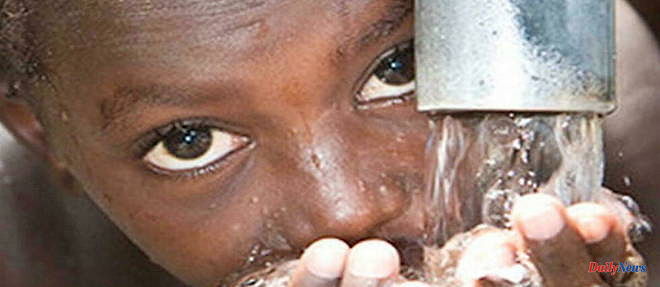Despite the significant investments made in recent years, the account is not there for Africa. Demography and increasing urbanization have not made it possible over the past thirty years to substantially improve the lives of women and men. If the issue is primarily health, and therefore political, it also has a major economic dimension, because the development of the water and sanitation sector creates thousands of local and sustainable jobs.
The condition of African countries is not at all uniform according to their geographical, institutional and priority situation granted by the decision-making public authorities. While water stress is already increasing with global warming in North and East Africa, it is on the contrary a panorama of damage linked to the overflow of water in the Congo Basin that must be noted. , as in Brazzaville or Kinshasa at the end of last year. In total, across the continent, more than 400 million Africans do not have safe access to water and sanitation.
The health issue is major: 80% of diseases are waterborne (cholera, diarrhoea, dysentery, typhoid, malaria, etc.), some of which are on the rise, such as cholera, which affects nearly 15 countries and was declared a "public health emergency" in Malawi in December 2022. Admittedly, the situations are contrasting: if, in the DRC, 60% of the population does not have access to water, it is only less than 20 % in Côte d'Ivoire and less than 8% in Morocco thanks to a resolutely proactive policy supported at the highest level in the kingdom. If we look at the population that benefits from safe "at home" water (taps) distributed by an operator, only 125 million Africans are concerned. One could evoke a considerable development potential in the construction of equipment and services if this problem were not above all that of giving these populations the dignity that they are entitled to expect from their leaders.
On July 28, 2010, the UN declared the right to water a "human right" and the 17 Sustainable Development Goals (SDGs), in 2015, placed water and sanitation as goal no. 6. But it is clear that progress is much too slow... And yet - several studies have shown - 1 dollar invested in water has an indirect benefit of 5 to 7 dollars: time saved to fetch the water, needs of industry satisfied, agricultural yields multiplied by two in the event of irrigation, induced effects on economic development and education.
If it is necessary to "accelerate", it is here and now, by carrying out concrete and local actions: development of rural boreholes, simplified systems in medium-sized towns, extension of existing systems in urban centers, agricultural irrigation systems (food self-sufficiency), dams, etc. All are stakeholders: local authorities, the African Union and other regional geographical organizations, the UN, international donors and the indispensable support of the private sector and civil society. These decisions, finally taken by elected officials within the framework of a political and budgetary vision which must in no case be limited to the short term, will have a considerable effect on the health plan and on economic development..., ultimately human development. . So, between March 22 and 24, at the UN headquarters in New York, during the Water Conference, make it happen!
* President of the (Re)sources think tank and former Africa President of Medef (Mouvement des entreprises de France)
** International water and environment consultant












